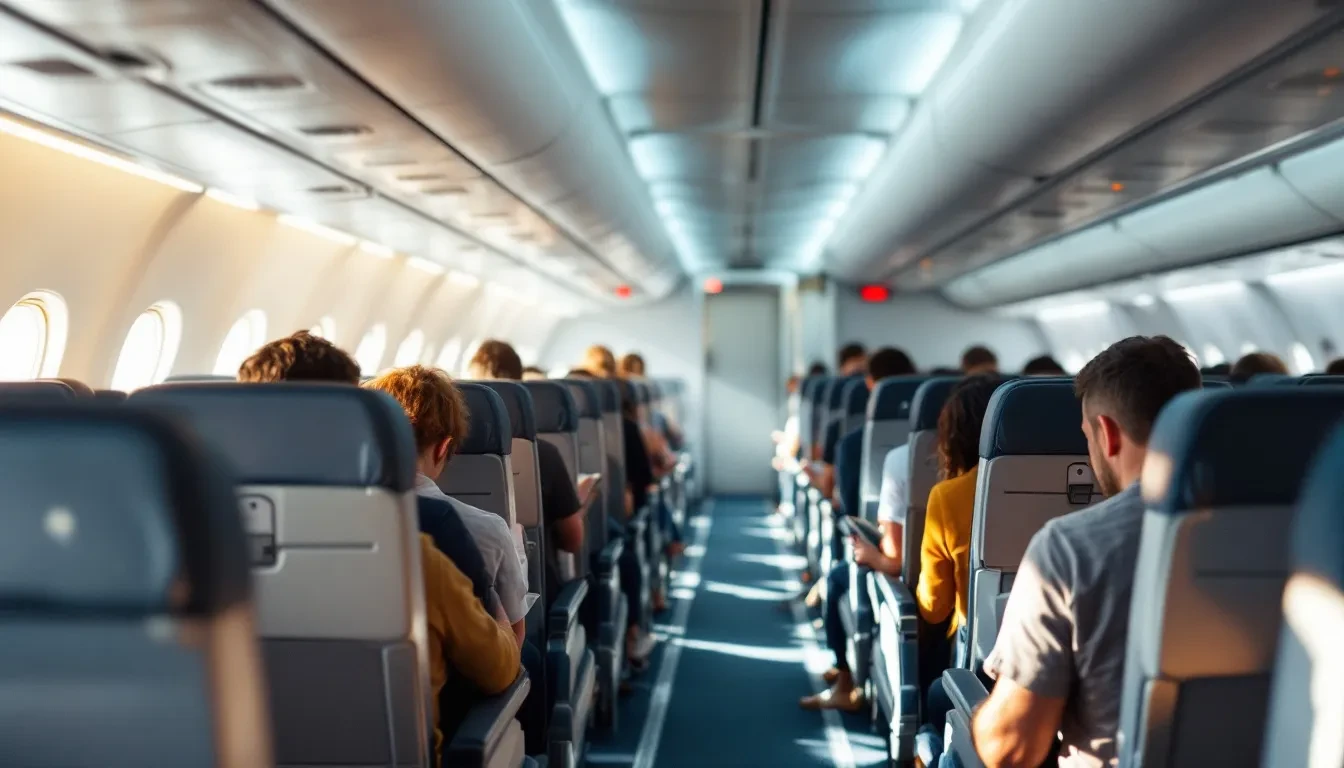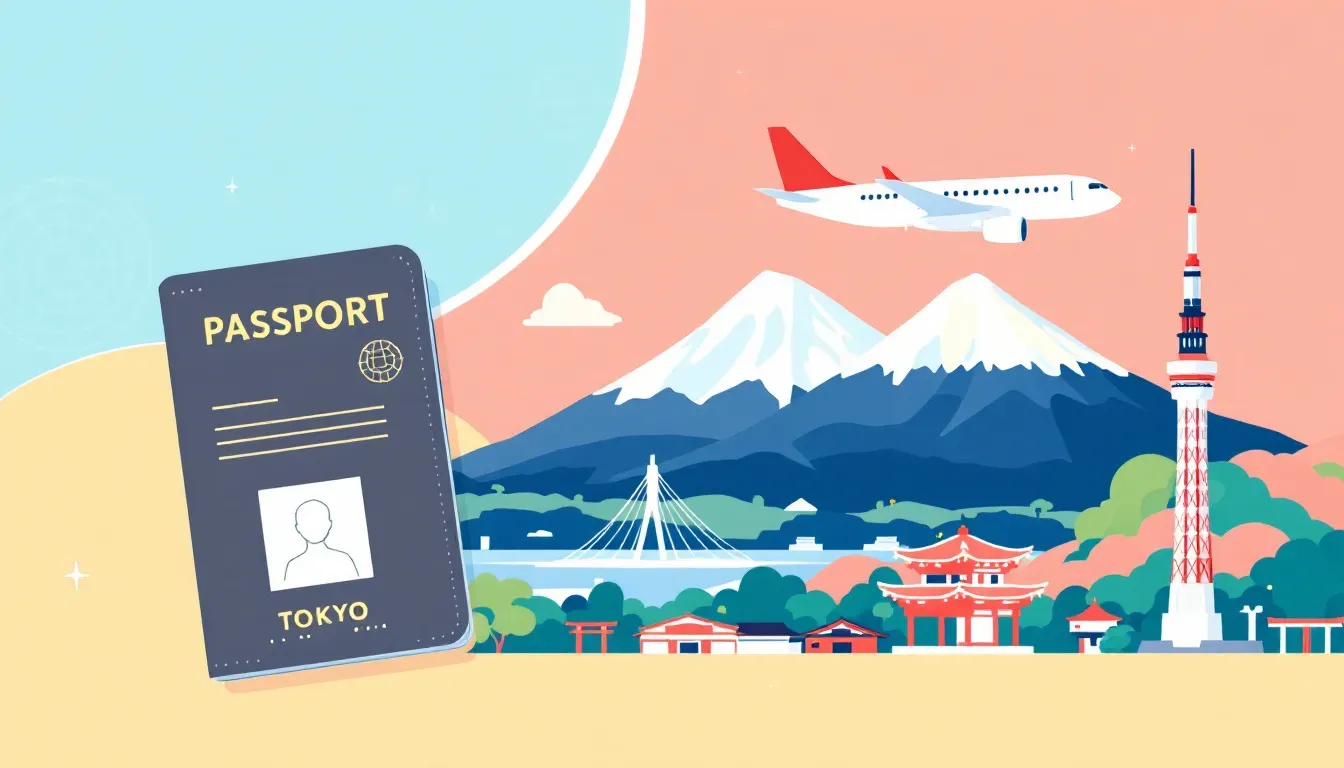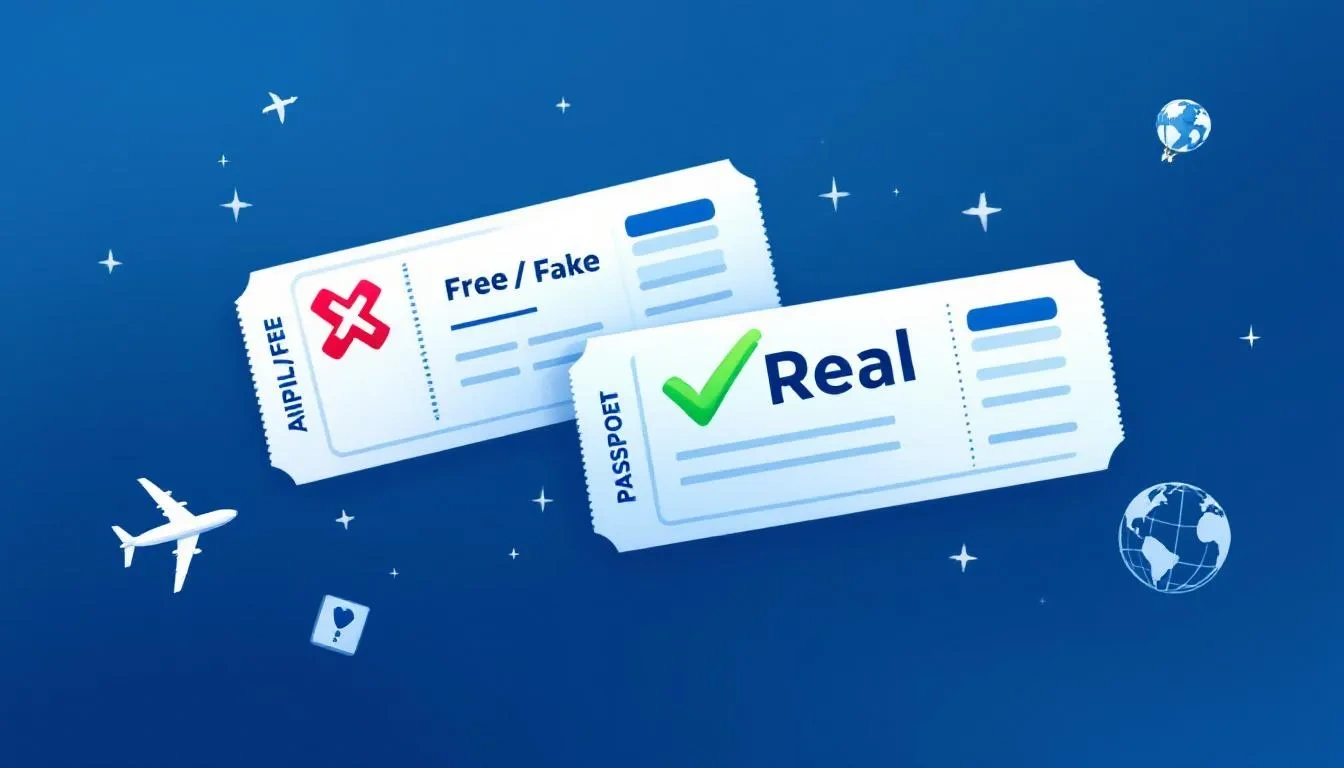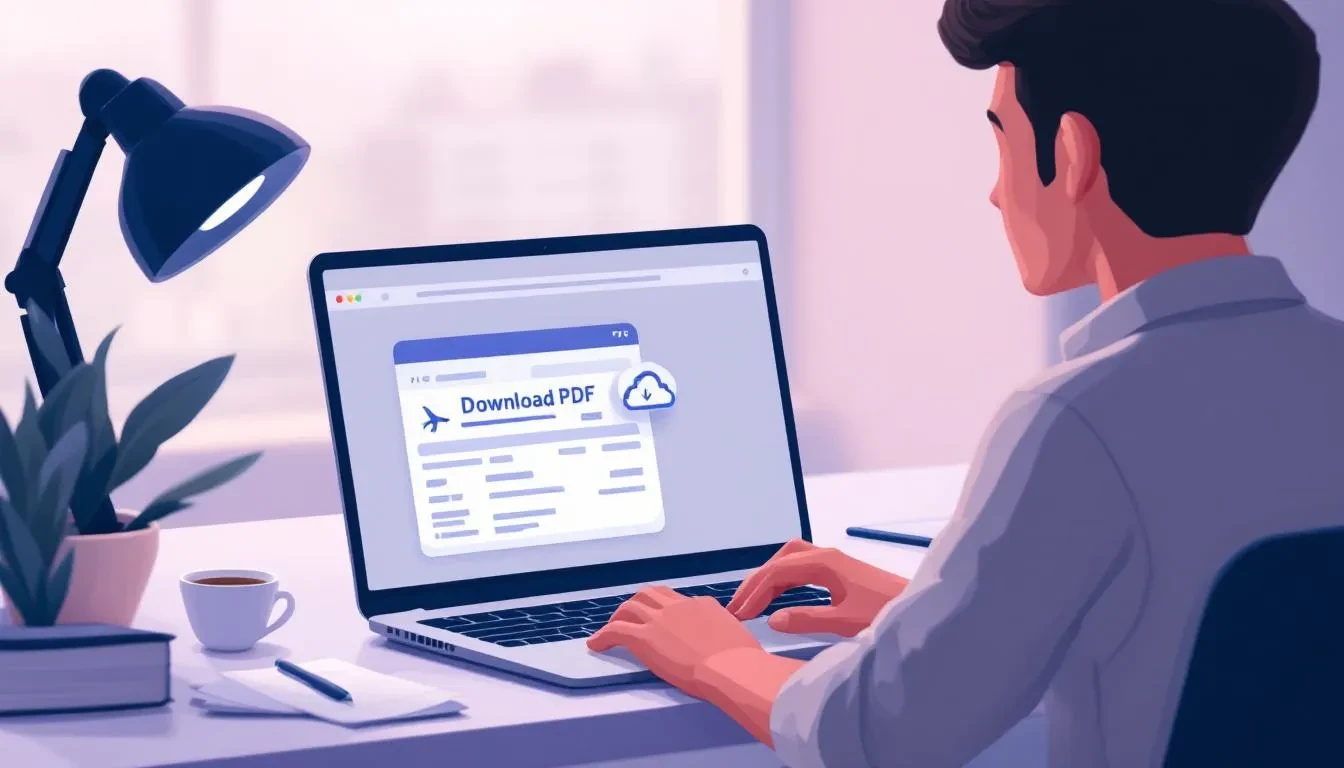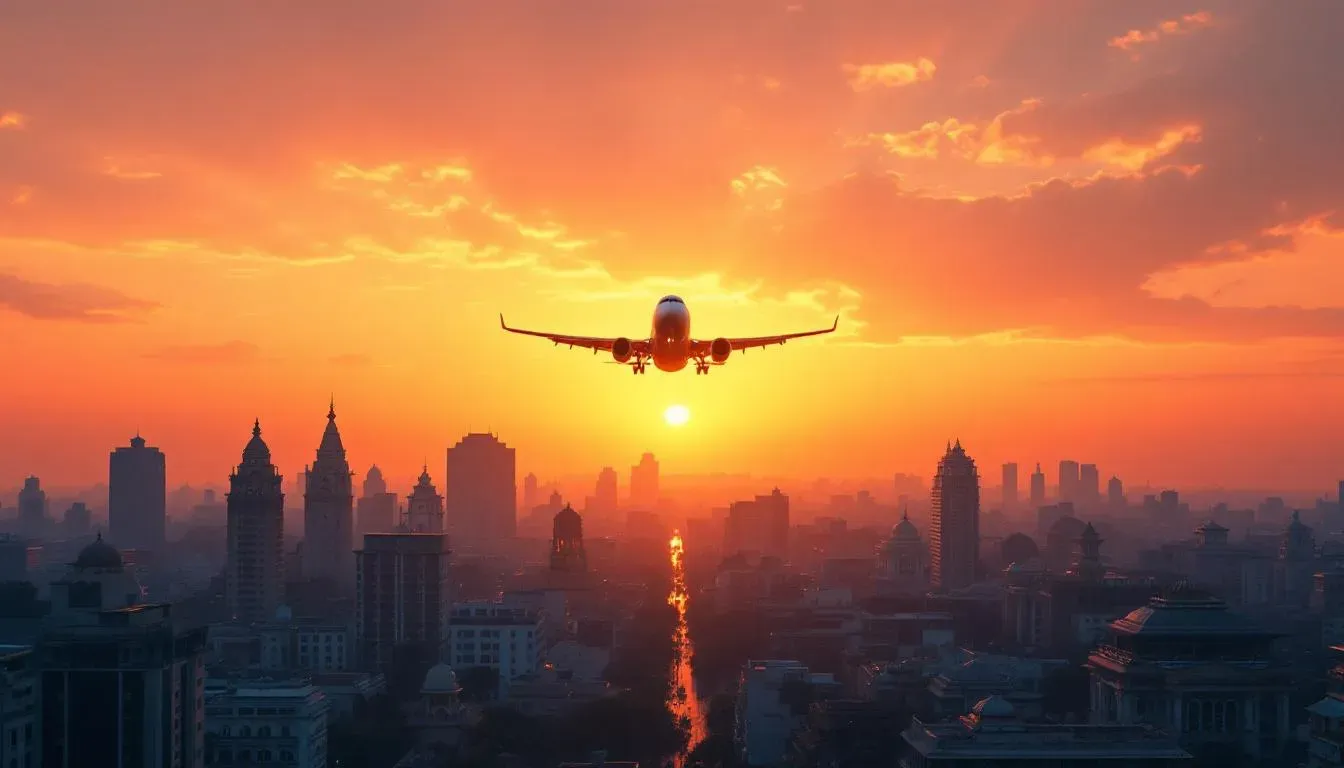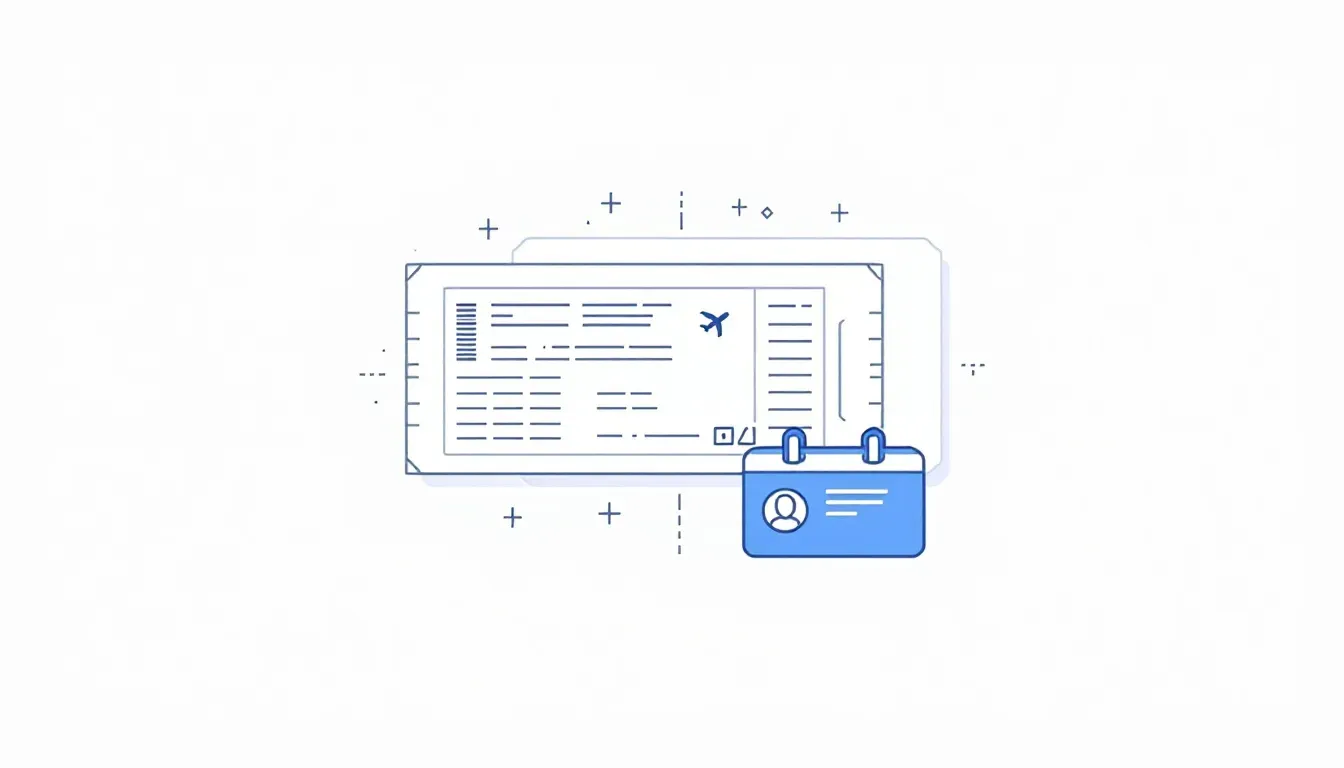Can Airlines Detect Dummy Tickets? Explained Clearly
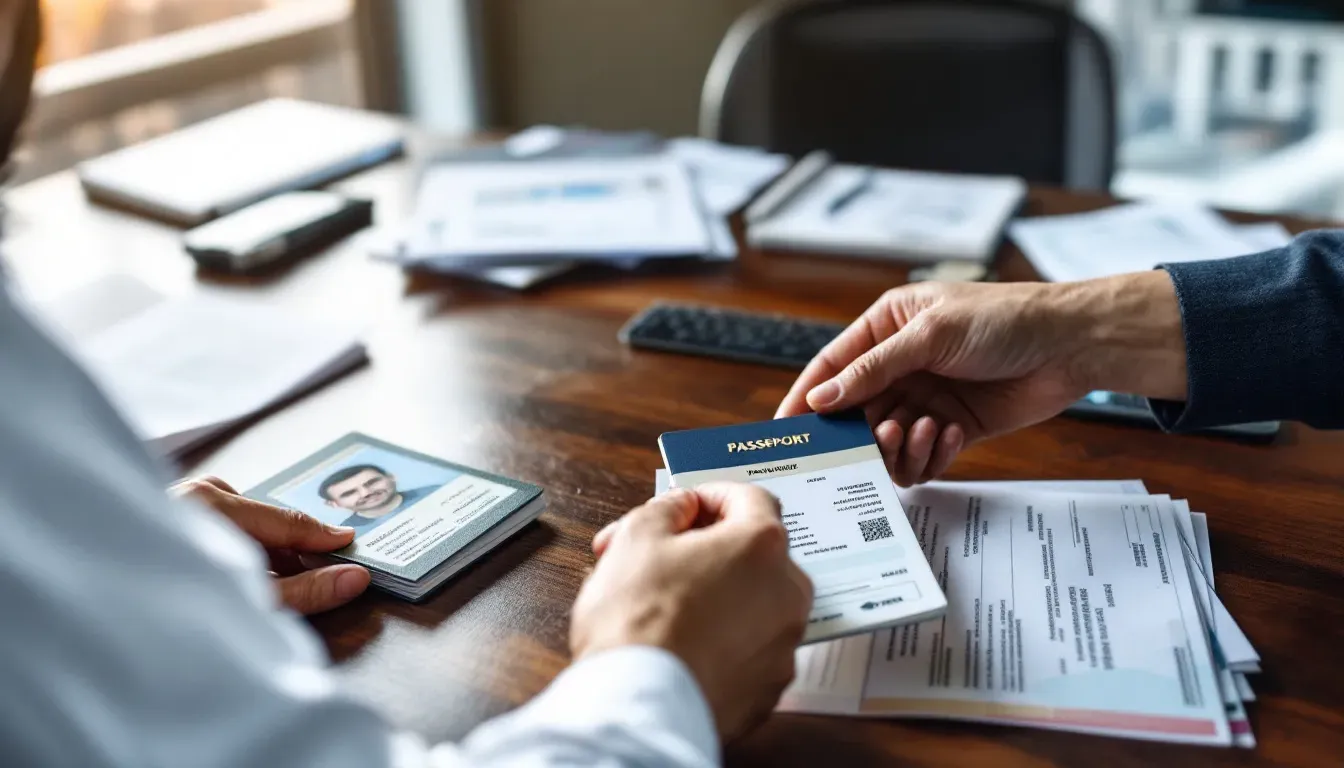
How Airlines Detect Dummy Tickets and What PNRs Reveal
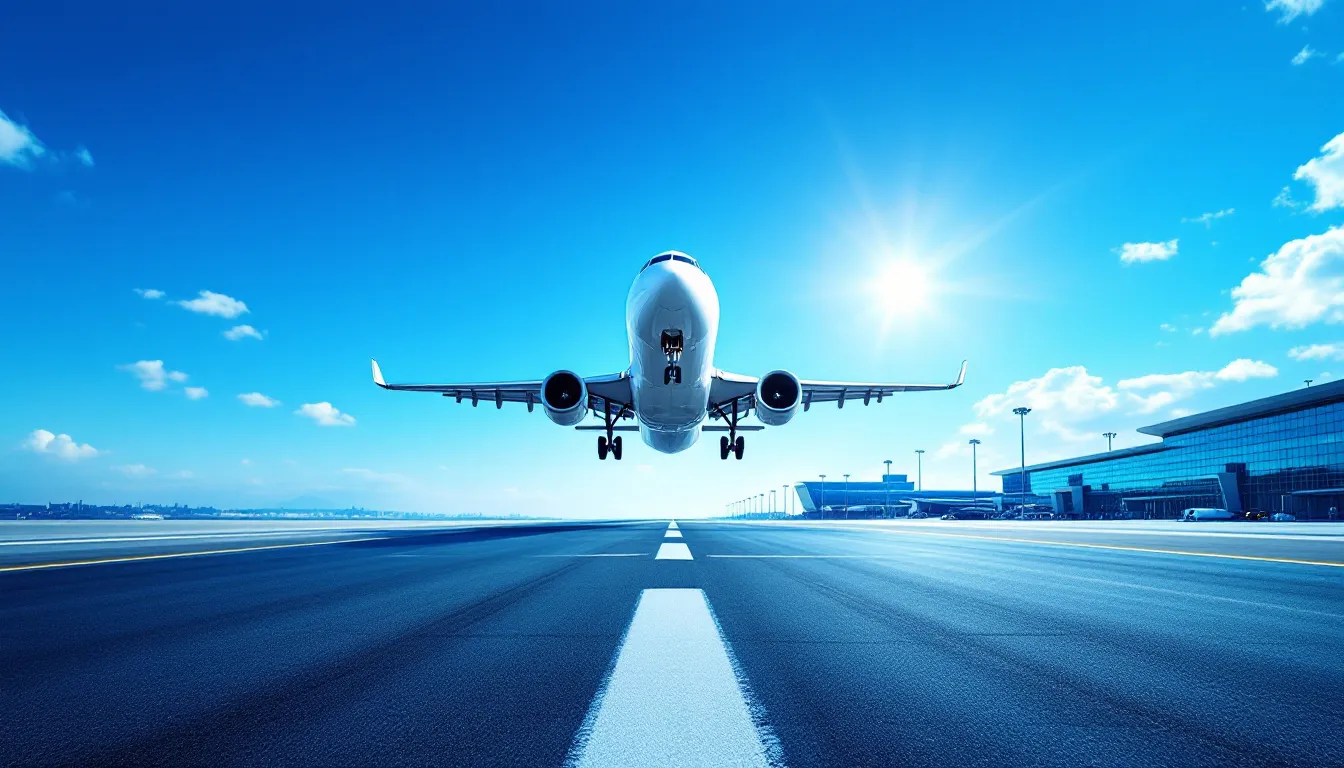
Updated for 2026
If you’ve ever applied for a visa, you already know how tricky the paperwork can get. Embassies often want to see flight and hotel bookings, but at the same time, they warn you not to buy real tickets before your visa is approved. That’s where a dummy ticket for visa comes in. They’re real, verifiable reservations you can use to meet embassy requirements without risking your money on a flight you might not take. For more details on our services, visit our About Us page.
But there’s one question that makes a lot of travelers nervous: can airlines actually detect these dummy tickets for visa? In this guide, we’ll clear up the confusion. You’ll see how reservations and PNRs work, why dummy flight tickets are safe for visa applications, and what really happens if someone tries to use one to fly. Check our FAQ for common questions, or browse our blogs for more tips.
If your concern is whether an airline can “detect” a dummy ticket, the key is the difference between a fake PDF and a real, verifiable reservation. A genuine booking reference (PNR) that exists in a reservation system is typically what matters during checks. For a practical walkthrough, see our guide on generating a visa-ready itinerary with a verifiable booking reference.
Can airlines detect dummy tickets is one of the most common questions travelers ask in 2026—and the truth is simple: airlines can detect fake or unverifiable bookings, which may cause issues during check-in or visa screening. ✈️ Using a real, PNR-verified reservation ensures your onward travel proof passes all systems without red flags.
Get a professional, PNR-verified dummy ticket to avoid detection problems, ensure perfect date/name accuracy, and boost visa approval odds. Pro Tip: Always test the PNR on the airline website to confirm it’s valid! 👉 Order yours now and travel stress-free.
Last updated: January 2026 — Verified against latest airline verification rules, IATA guidelines, and global visa case studies.
Table of Contents
- How Airlines Access And Use PNRs And Reservations
- Reservation Vs. Issued Ticket: The Practical Differences
- Why You Can’t Board A Flight With A Dummy Flight Ticket
- Country-Specific Tips for Using Dummy Tickets
- dummyflights.com: A Verifiable, Embassy-Friendly Reservation Option
- Can Airlines Detect Dummy Ticket: The Bottom Line
- Frequently Asked Questions About Dummy Tickets
How Airlines Access And Use PNRs And Reservations
Before we get into the details of tickets versus reservations, it helps to understand what actually sits behind every booking. When you hear about PNRs and dummy tickets for visa, you’re really talking about how information is stored and checked. Let’s break this down clearly, with 2025 digital enhancements in mind.
What A PNR/Reservation Actually Is
PNR stands for Passenger Name Record. Think of it as the digital file that contains your travel details. Whenever you or I book a flight, the system creates a PNR that links together:
-
Your name and contact information
-
Flight numbers and dates
-
Route and seat details if chosen
-
The status of the booking
The key point is that a PNR itself doesn’t automatically mean you’ve paid. It can exist whether you’ve only reserved a seat or you’ve gone all the way and bought the ticket. For example, PNR “ABC123” could show you’re on a flight from New York to Paris next month, but it might still be waiting for payment before the airline actually issues a ticket. That’s why embassies accept reservations for visas, but airlines won’t let you fly on them.
Where PNRs Live And Who Can See Them
So where do these records sit? They’re stored in airline booking systems and what’s known as global distribution systems (or GDS for short). If you’ve ever used Expedia, Booking.com, or a travel agency, you’ve already brushed up against a GDS. These systems let airlines, agencies, and partners share booking information.
Here’s who typically has access to a PNR:
-
Airlines themselves, through their own reservation systems
-
Travel agencies that booked the flight for you
-
Global distribution system partners that connect airlines and agencies together
-
Embassy and consular staff who may check your reservation for visa purposes
-
Government or immigration systems in certain countries that screen passenger data in advance
Access isn’t wide open, though. PNRs contain sensitive personal details like names, phone numbers, and sometimes passport information. That means only authorized systems and staff can view them. A random person can’t type your name into a search bar and pull up your itinerary. What can happen, however, is that anyone with your booking reference code and surname can check the reservation directly on the airline’s website. That’s why embassies ask for the PNR — it lets them quickly confirm if your dummy ticket for visa is genuine.
How Consulates Verify Bookings
If you’ve ever handed in a flight reservation with your visa application, you might have wondered what happens next. The process is usually very straightforward, especially with 2025's increased use of AI-assisted checks.
Here’s what consular staff might do:
-
Check the document itself. They look at the PDF or printout to see if the airline, PNR, and passenger name all line up.
-
Use the airline’s website. Most carriers have a “Manage My Booking” or “View Reservation” page. By entering the PNR and last name, the embassy can see the same information you would.
-
Contact the airline directly. In some cases, they may call or use their verification channels to confirm.
-
Run automated checks. Larger embassies sometimes have tools that connect directly with airline databases.
In practice, most consulates are satisfied if the PNR can be pulled up on the airline’s public site. That’s why genuine dummy tickets work: the PNR is real, the reservation shows up, and the embassy gets the evidence it needs. This is very different from a fake PDF with made-up details, which would never pass a check.
Limitations And Common Misconceptions
Now, let’s clear up a few myths. A PNR doesn’t mean you have a boarding pass waiting. It just means your details are sitting in the system. Until the airline assigns a ticket number and confirms payment, you don’t have the right to check in or board. That’s why embassies accept reservations for visa purposes, but the same document won’t get you past the check-in counter.
Another common misconception is that a dummy flight ticket is somehow fake or shady. That’s not the case. Many legitimate temporary reservations exist, and they’re widely used by embassies and visa applicants. The important part is that the PNR is verifiable. If you can look it up on the airline’s website, then consular staff can too.
So while airlines can absolutely detect whether a booking is only a reservation, that doesn’t make it a problem for visa purposes. It simply means you’re not cleared to fly yet. In the next section, we’ll look at the exact differences between a reservation and a fully issued ticket, and why knowing that distinction matters for your application.
Reservation Vs. Issued Ticket: The Practical Differences
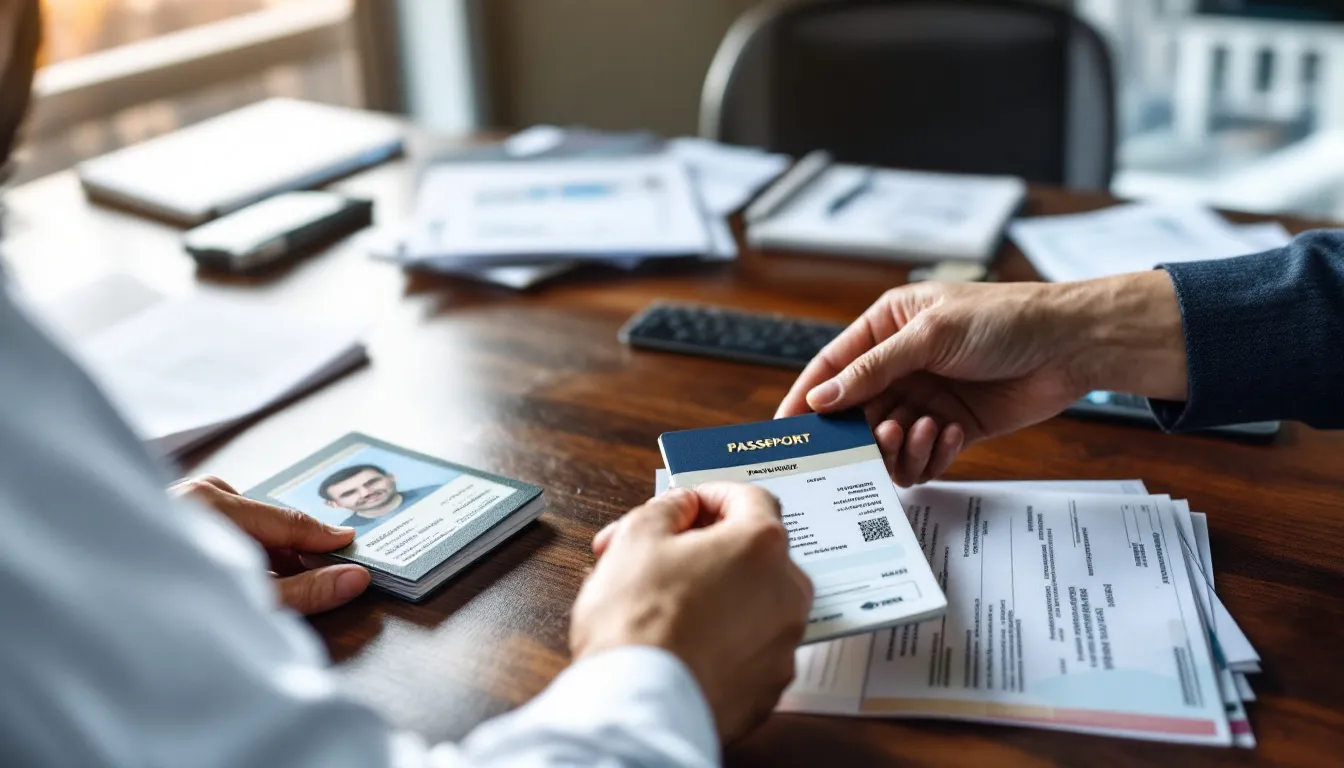
If you’re submitting a dummy ticket for a visa, a simple “quick check” can prevent rejection: make sure the booking reference (PNR) actually pulls up in an airline or GDS-linked system, and confirm your passenger name + travel dates match your application exactly. Many refusals happen because the PDF is only a template, the PNR can’t be verified, or small details don’t align (spelling, dates, routing). For a clear example of what a visa-ready document should look like, follow our step-by-step guide to download a visa-ready dummy ticket PDF.
Now that you know how PNRs work, it’s time to see the real dividing line between a simple reservation and a fully issued e-ticket. Many travelers mix the two up, but embassies and airlines treat them very differently. Let’s walk through the differences step by step, with 2025 tech in view.
Definitions And The Paper Trail
A reservation is essentially a hold in the system. Your name, itinerary, and flight details are there, but no ticket number exists yet. Think of it as putting an item in your online shopping cart — it’s reserved, but you haven’t paid for it.
An e-ticket, on the other hand, means payment is confirmed, and the airline has assigned a unique ticket number. This ticket number links you to the fare you paid and gives you the right to check in and board.
-
Embassies typically ask for flight reservations with a visible PNR because they only need to confirm your travel plans.
-
Airlines require an e-ticket with a ticket number, because only that shows you’ve paid and secured the right to fly.
The paperwork looks similar, but what it allows you to do is very different.
Visual Cues And Proof — What Embassies Look At
When you apply for a visa, consulates don’t expect to see a paid ticket. They just want proof that you have realistic travel plans. That’s why they look for very specific elements in your reservation:
-
The passenger’s full name, matching the passport
-
Airline name and flight numbers
-
Departure and arrival dates
-
PNR (booking reference code)
-
An airline confirmation or a link that allows staff to check the booking
A well-prepared reservation PDF should have all of this information clearly visible. This is what makes it credible in the eyes of consulates. If the PNR pulls up on the airline’s website, then the document is considered valid for visa purposes.
Now compare that to what an e-ticket shows. Alongside the basics above, it also includes:
-
A unique ticket number (13-digit number usually starting with the airline’s code)
-
Fare class or booking code
-
Payment details or receipt information
That’s the difference. A dummy reservation is built to satisfy embassy staff, while an e-ticket is built to satisfy the airline’s check-in system.
Technical/Legal Consequences
Here’s where the legal side kicks in. Once you hold an e-ticket, you’ve entered into a contract with the airline. They are obliged to carry you under the conditions of that fare, and you have the right to board, provided you meet visa and entry requirements.
A reservation won’t carry that weight. Without a ticket number, you have no contractual rights yet. That’s why airlines can cancel unpaid reservations after a certain period.
For embassies, this distinction doesn’t matter. Their job isn’t to enforce airline contracts — it’s to confirm that you’ve planned your travel. That’s why a verifiable reservation is enough for visa purposes. It shows intent without forcing you into expensive commitments.
Refunds and cancellations also follow this logic. With an e-ticket, whether you get money back depends on the fare rules. With a reservation, no money has changed hands, so there’s nothing to refund.
The bottom line: embassies need proof of planning. Airlines need proof of payment.
Dummy Airline Ticket: Real-World Examples
Let’s bring this into real situations that travelers face all the time.
Scenario 1: The student visa applicant
Maria from Brazil is applying for a French student visa. She uses a verifiable dummy reservation with a PNR that shows her intended flight from São Paulo to Paris. The French consulate checks the PNR online, sees the reservation, and accepts her application. Maria later buys her real ticket once her visa is approved.
Scenario 2: The digital nomad mistake
Alex, a remote worker from Canada, assumes his reservation is enough to travel. He shows up at the airport with only a reservation PDF. The check-in staff member enters the PNR, sees no ticket number, and politely explains he cannot board without an issued e-ticket. Alex has to buy a new ticket at the counter — at a much higher last-minute fare.
The lesson from both cases is clear:
-
Reservations work perfectly for embassies.
-
Airlines demand ticket numbers.
-
Always double-check that your dummy ticket for visa shows a visible, verifiable PNR so consulates can confirm it instantly.
These small details make the difference between a smooth visa process and a stressful airport surprise.
As we move forward, we’ll look closer at why dummy reservations, while great for visas, won’t ever get you onto a plane — and what you should do if you actually want to fly.
Why You Can’t Board A Flight With A Dummy Flight Ticket
A modern flat design world map displays dotted travel routes connecting various cities, with glowing connection points highlighting potential travel paths. This symbolizes global travel and the role of flight tickets and itineraries in planning journeys.
A dummy flight ticket might look convincing on paper, but it won’t ever get you past the airport gate. Airlines, immigration authorities, and security systems all rely on something much more concrete: a paid, issued ticket with a ticket number. Let’s break down why, with 2025's advanced screening in view.
Airline Check-In And Boarding Requirements
Check-in isn’t just about handing over your passport. Airline staff follow a strict process every time a passenger approaches the counter:
-
Locate your booking in the system. The first thing staff check is whether your PNR is linked to an issued ticket number. Without it, the booking shows as “unconfirmed” or “on hold.”
-
Verify travel documents. They’ll check your passport, visa, and any required entry documents against the itinerary.
-
Issue a boarding pass. This step only works if your ticket number confirms you’ve paid. The system won’t generate a boarding pass for unpaid reservations.
-
Add you to the flight manifest. Only paid ticket holders appear on the official passenger list shared with immigration and customs.
That’s the key reason dummy reservations fail at the gate. They’re valid for visas, but without a ticket number, you’re invisible in the airline’s operational system. Boarding always depends on having a fully paid, issued ticket.
Payment, Fare Rules, And Carrier Liability
Airlines don’t issue tickets for free — and for good reason. Each ticket represents both financial commitment and legal liability. As per IATA guidelines, carriers must ensure proper documentation.
-
Financial protection. Until payment is received, the airline has no guarantee the passenger will show up. Issuing tickets only after payment protects them from lost revenue.
-
Regulatory compliance. International aviation rules require carriers to keep accurate manifests and ensure all passengers have legitimate contracts of carriage. That contract begins only when a ticket number is created.
-
Fare construction. Ticket numbers tie into fare rules — things like refunds, date changes, and penalties. These rules can’t apply until the fare is paid.
Think of it this way: a dummy reservation is like penciling your name into a restaurant waitlist. A ticket number is when you’ve paid for the meal and secured your seat at the table.
Transit, Regulatory, And Operational Checks
There’s also a serious security and logistical side. Airlines can’t risk carrying passengers without proper tickets because it impacts:
-
Passenger manifests. Every flight’s manifest must be accurate to the seat — it’s cross-checked with immigration and security agencies. An unpaid reservation won’t appear on the final list.
-
Immigration coordination. Border officers need to know who is arriving and on what terms. If someone shows up with only a reservation, authorities treat it as an attempt to travel without a contract.
-
Weight and seat allocation. Aircraft balance and planning depend on confirmed passengers. Dummy reservations don’t assign weight, baggage allowances, or seats properly.
If you tried to check in with an unpaid booking, two things could happen:
-
Denied boarding. The most common outcome is that the staff member explains that you need to buy a ticket immediately.
-
Forced purchase at the counter. You may have to pay a higher last-minute fare, and in some cases, your preferred flight may already be sold out.
These aren’t theoretical risks — they happen every day to travelers who misunderstand the difference between reservations and tickets.
How To Convert A Reservation Into A Valid Ticket
If you’ve got a dummy reservation but now need to travel, the good news is you can upgrade it into a full ticket. Here’s how:
-
Contact the airline or travel agency. Use the PNR from your reservation.
-
Pay the fare. Once payment is processed, the booking moves from “on hold” to “ticketed.”
-
Ask for immediate issuance. Some systems require a manual trigger — request that the e-ticket be generated right away.
-
Confirm the ticket number. Look for the 13-digit ETKT number on your updated itinerary.
-
Verify online. Use the airline’s “Manage Booking” page to check that your ticket shows as confirmed.
-
Keep documentation. Print or save the updated e-ticket, not just the reservation.
For last-minute travelers: Airlines may hold fares for a few hours, but once that window closes, prices often jump. If flexibility matters, consider paying for a refundable fare — it gives you the protection of a ticket without locking you into a non-changeable plan.
dummyflights.com: A Verifiable, Embassy-Friendly Reservation Option
If you want to see how a real PNR-based reservation is generated for visa use, here’s a practical walkthrough that shows what embassies typically verify and how a booking reference appears in airline systems: dummy airline ticket generator with PNR for visa applications .
Visa applications often come down to paperwork, and one of the most common requirements is a flight itinerary. Embassies want to see that you have travel plans, but they don’t want you to risk money on a non-refundable ticket before your visa is approved. That’s where dummyflights.com comes in — offering verifiable flight reservations that are safe, practical, and designed specifically for the visa application process.
Order your dummy ticket for visa today
What dummyflights.com Provides
dummyflights.com issues real, dummy air tickets and hotel reservations with all the essential booking details included. Each document:
-
Comes with a unique PNR code
-
Can be confirmed directly on the airline's system through their website
-
Is delivered instantly as a PDF with your ticket details
These are genuine, time-limited reservations created in airline/GDS-linked systems. That’s why embassies accept them as part of visa documentation. Having a confirmed booking with a flight reservation number that shows up on an airline's official site is enough to satisfy most consulates.
Core Features That Matter To Visa Applicants
The service is built to remove stress and unnecessary costs while giving you flexibility:
-
Instant PDF download with your booking reference number included.
-
Unlimited date changes at no extra charge.
-
Round-trip ticket or one-way ticket options, depending on your travel dates.
-
Multi-city and onward travel routes for complex itineraries.
-
Transit filters so you avoid red flags like connecting through a country where you need a transit visa.
-
Fixed price: $15 per person per flight booking or hotel.
These features are why students, families, event organizers, and digital nomads rely on the service. Whether you’re applying for visa approval or showing proof of onward travel, dummyflights.com helps you avoid risky spending on a real flight ticket before your plans are confirmed.
Why Consulates Accept Verifiable Reservations
Consulates and immigration officers don’t expect a genuine ticket at the visa appointment. What they want is proof that a booking exists — with clear arrival times, seat assignment (if applicable), and a bar code they can scan or verify.
When they check, they’ll see the booking website reflects your specific flight. If needed, they can confirm through the airline's customer service number or their own verification channels. This is how they spot fake documents: if the reservation doesn’t show in the system, it raises red flags. dummyflights.com eliminates that risk because every reservation is real.
How To Order And Use The Reservation Safely
Here’s how to get your verifiable flight reservations step by step:
-
Go to dummyflights.com.
-
Enter passenger details exactly as in your passport.
-
Select a flight itinerary or dummy hotel booking.
-
Pay securely online (just $15 per service).
-
Instantly receive your actual reservation with flight number and confirmed booking.
-
Print it out or email it directly to visa officers.
For best outcome:
-
Match travel dates with your visa application process timeline.
-
Double-check names to prevent visa rejection.
-
Keep your PDF ready during your visa appointment in case the staff asks to verify.
By following these steps, you’ll have reservations that meet all the requirements without wasting money on a real flight ticket too early.
Can Airlines Detect Dummy Ticket: The Bottom Line
Applying for a visa often feels like walking a fine line, but the truth is simple. Yes — airlines and embassies can access PNRs, and dummy tickets for visa are both detectable and verifiable. That doesn’t make them illegal. They’re real, time-limited bookings that serve one purpose: giving you safe, risk-free proof of travel while your visa is under review.
Remember three things. First, always check that your PNR works. Second, never try to board with an unpaid reservation. Third, if you need a reservation that embassies will trust, use a service built for the visa process. Done right, dummy tickets remove stress instead of adding it.
Stay safe — order a verifiable dummy ticket today from DummyFlights.
Frequently Asked Questions About Dummy Tickets
What is a dummy ticket?
A dummy ticket is a verifiable flight reservation used for visa applications, providing proof of travel without purchasing an actual ticket.
Can airlines detect dummy tickets?
Yes, airlines can see if a booking is a reservation without a paid ticket number, but this is acceptable for visas, not for boarding.
How do embassies verify dummy tickets?
Embassies check the PNR on airline websites or contact carriers to confirm the reservation exists.
Is using a dummy ticket legal?
Yes, genuine dummy tickets with real PNRs are legal for visa purposes when used as proof of intent.
Can I board a flight with a dummy ticket?
No, dummy tickets lack issued ticket numbers required for check-in and boarding.
What Travelers Are Saying
More Resources
Related Guides
About the Author
Visa Expert Team — With over 10 years of combined experience in travel documentation and visa assistance, our editorial team specializes in creating verifiable flight and hotel itineraries for visa applications. We have supported travelers across 50+ countries by aligning documentation with embassy and immigration standards.
Editorial Standards & Experience
Our content is based on real-world visa application cases, airline reservation systems (GDS), and ongoing monitoring of embassy and consular documentation requirements. Articles are reviewed and updated regularly to reflect current practices.
Trusted & Official References
- U.S. Department of State — Visa Information
- International Air Transport Association (IATA)
- UAE Government Portal — Visa & Emirates ID
Important Disclaimer
While our flight and hotel reservations are created to meet common embassy requirements, acceptance is not guaranteed and may vary by country, nationality, or consulate. Applicants should always verify documentation rules with the relevant embassy or official government website prior to submission.
Need official visa guidance before you submit?
For embassy checklists, visa document rules, and proof-of-travel requirements, read our trusted guides: Expert visa guides by BookForVisa .
Tip: Use DummyFlights for your verifiable PNR reservation and BookForVisa for step-by-step visa documentation guidance.


